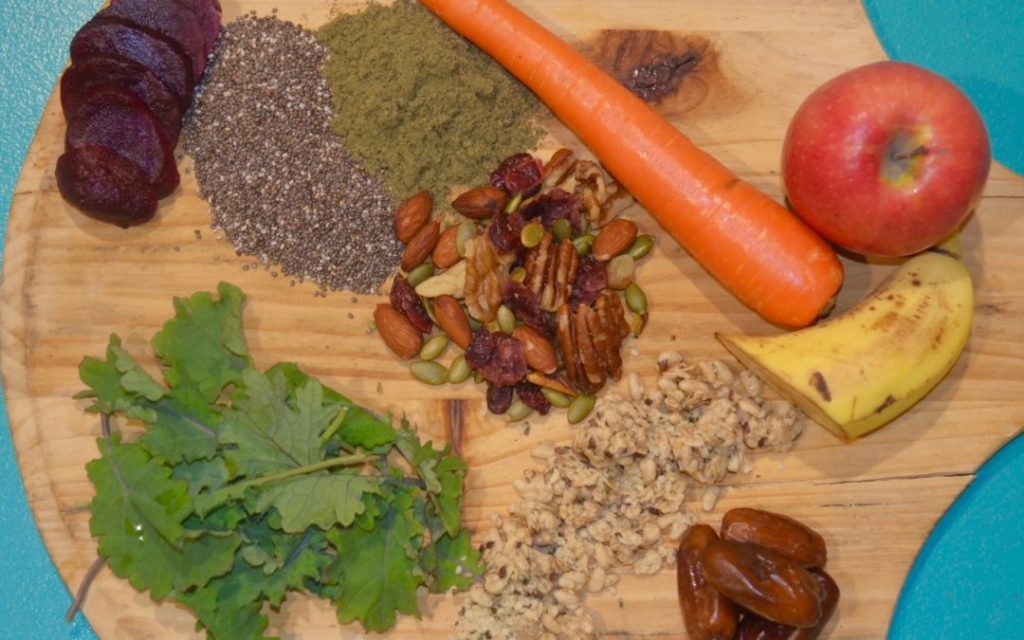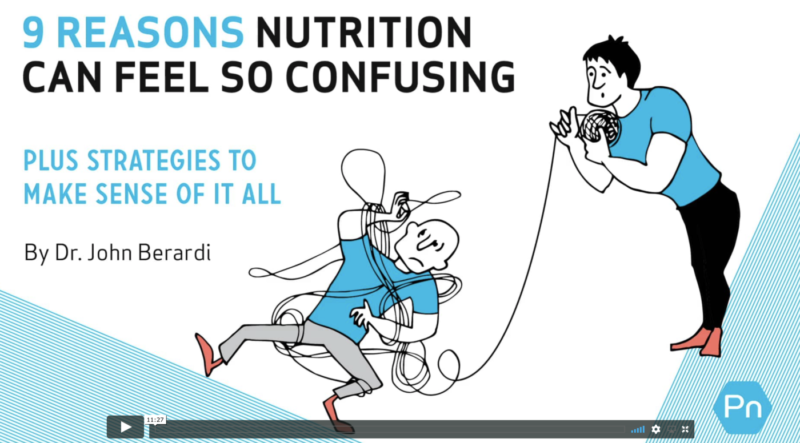My Vegan Experience
Share This

I love food. Love it. Eating food. Cooking food. Watching movies about food. I’m an addict. Food has always played a very important, and very major role in myself. As an athlete, I’m conscious of what I put in my body to help me move and feel better. As a food enthusiast, I eat all day. As a son, brother, cousin, and uncle, food has been the cornerstone of many of our family get togethers. My mother is Palestinian, and my father Lebanese – rich cheeses, lamb, yogurt and eggs are as much of a staple in our traditions as olive oil, vegetables and fresh breads.
Four years ago, my relationship with food and how I look at consuming food was turned upside down. Forks Over Knives, a documentary that examines the profound claim that most, if not all, of the degenerative diseases that afflict us can be controlled, or even reversed, by rejecting our present menu of animal-based and processed foods.. The documentary raised alarming possibilities about animal-based protein, its links to cancer and its effects on our health. Those really drove the point home for me, and made me reconsider eating animal-based products. The next day, I was vegan.
Going vegan presented some interesting challenges. I suddenly had to learn how to cook without meat and dairy – substituted quite a bit with nut milk and soaked cashews so crisis averted, but I also found that it was actually more of a struggle to maintain my weight! You’d think eating only as an herbivore, I’d actually lose weight, but then again have you ever seen a skinny elephant? I was always starving. The struggle there was finding out new and creative ways to get myself full WITHOUT loading up on fruit and fat.
Not to mention, I found myself having trouble eating anywhere I went. Worrying about what I was eating 24/7, obsessing over ingredients, and limiting any night out (due to all the limitations on the menu) or attend social events to dissipate the temptation.
On a plus note, I did feel GREAT, no more random headaches and the process of learning new recipes and discovering new foods was actually kind of fun. To my even bigger surprise, I was able to maintain most of my muscle mass which is something that became an initial concern of mine. Most of all, I felt great about the cause and positive impact I could make on our environment. After a year, however, I noticed something was off.
I never ever get sick, like EVER, but I remember one afternoon I just felt off and had a stomach ache… Then everything got progressively worse. I was vomiting and making frequent stops to the bathroom. Not fun.
My body was telling me enough is enough. I tried all the medicines the first two days and nothing made me feel an ounce better, and at that point I had ENOUGH. So I reached out to our naturopathic medicine chef Tina Martini, and she prescribed me yogurt. Yep, yogurt, accompanied with a few other magical ingredients like ground cloves. Who would’ve thought? And you know what, I was 90% better within an hour!
Apparently, my microbiome in my gut was compromised by not having a healthy balance of bacteria, which we get from fermented bacteria in foods like yogurt, kefir, sauerkraut, kimchi and kombucha. Inflammation can occur when the balance of gut bacteria in our GI is off cause the body to excrete harmful bacterias, preventing allergies, removing carcinogens, regulating body fat and hormonal responses and in my case, weakening my immune system.
So wait a minute, isn’t veganism supposed to be the high water mark and beacon of all things healthy?
The problem lies in the lack of other key nutrients. Vegetarians and vegans are often deficient in riboflavin, calcium, vitamin B12 (helps convert food to energy), iron and zinc. Iron in particular aids hemoglobin, which helps transport oxygen from the lungs to working muscles. Females need more iron than males to support the blood loss during menstrual cycles. Iron is best absorbed from animal sources (up to 40%), whereas the absorption rate from vegetables is 10%. After speaking with other top professionals, I learned people can heal and reverse from cancers and diseases with dairy and meat based diets.
So what was the biggest lesson I’d learned?
Veganism was not sustainable for me and my lifestyle, and most likely, unless you’re deciding to go live on a commune in the middle of California where there is a STRICT “animals only as pets” policy, veganism will probably encroach on your lifestyle too. You really need to examine why you may choose to go vegan before you dive in head first. If it’s more for environmental purposes, sustainability, or, for animal rights and you firmly believe that by eating less to no animal-based products will help you reduce your carbon footprints, then I wholeheartedly understand that. I strongly advise looking into supplementation for the above nutrients and stay away from the processed “fake meats”.
If you’ve decided to go vegan because it’s trendy, or, because you think it will help you lose weight, I urge you to reconsider. Look at the healthiest countries in the world and how they eat, look at their statistics of cancer and disease. Sustainable weight loss doesn’t come from extreme lifestyle changes. It comes from consistency, the sources of our food, exercise or daily movement and reducing the overall stress in our lives. If you are constantly worried about finding something you can eat, or eat in a rush before you head out with non-vegan friends, or even feel bad about what you’re eating, your brain can shutdown your GI tract and store fat as it thinks it needs to survive for something later on. So step one is to address your personal life and maybe why you are doing what you are doing.
Some key take-aways I’d like to share with you about my own experience:
-We do not need as much protein as we’re led to believe and I will never consume as much protein as I did before. For weight loss specifically, the appropriate amount of animal-based proteins can be highly effective. It increases a thermic effect in our bodies that increase heat and burns even more calories, as well as, keeping us fuller for longer. Keeping us away from overeating, which can lead to weight loss
-Going vegan can absolutley help reduce your carbon footprint, but not if you’re getting all your foods packaged and wrapped in loads of plastic. There are ways to still incorporate meat and plant-based products that are environmentally sustainable too. Local sourced meats are best, and look at how you can manage your lifestyle to be more sustainable as a whole -that can have a great positive effect on the environment. Meatless mondays could be super effective
-There are vegan recipes that taste good too. Period
-Vegan was not something I could do for the rest of my life. A diet that is practical, followed by a non-stressful lifestyle is the key to keeping weight off
-Where we get our food from is extremely important. Whole, minimally processed, well-balanced foods are the key to a successful diet, weight loss, muscle gain, etc. programs. I believe that’s why I felt so “great”, I didn’t consume as much processed meats. It seems that most of the research studies mentioned within the documentary were on processed meats and they did not consider the source of the meats and dairy products which have a HUGE impact on our health. And a lot of the tests were on rats
-Any diet can “work”, but for how long? Is it sustainable? Does the diet take into consideration your lifestyle, habits, body type, genetic predispositions, environment, how and when you eat, your current mental state, your health history with food? Does it coach you on habit change and how to develop new skills and how you can put them into practice? All of these things have a huge impact and need to be considered before choosing any type of extreme diet
I suggest you ask yourself what you really want to accomplish and why? Then ask yourself 5 more times, why? I hope this sheds a little more light onto what it may be like for a vegan, and I encourage you to do your research on both sides of the vegan/non-vegan argument before you do. If you’d like a custom plan that works for you and your lifestyle, visit Online Nutrition Coaching Program and for athletes, visit Fuel Your Performance
Here’s a great animation from Precision Nutrition on why nutrition can be so confusing:

